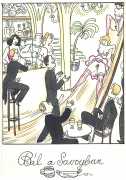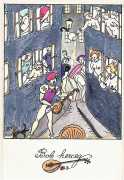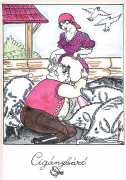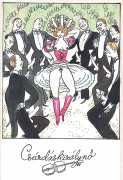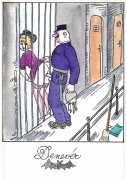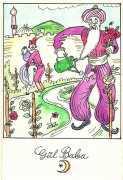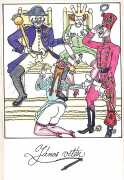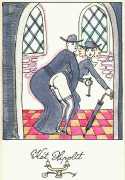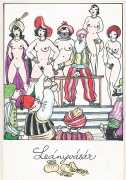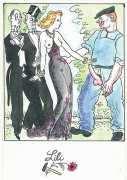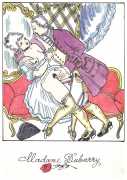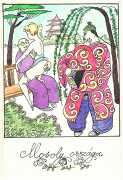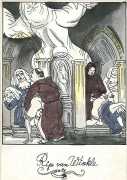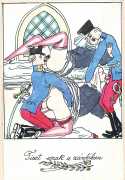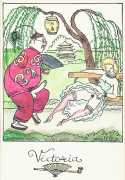Following the success of Chefs-d’oeuvres de l’opéra lyrique (1941) and Hősszerelmesek (1943), Emlékezetes Operettek (Memorable Operettas) was a natural sequel. Operetta was immensely popular in interwar Budapest, having thrown off the oppressive traditionalism and seriousness of the Habsburg period. After becoming independent from Vienna, the Hungarian capital was able to become an autonomous centre of international entertainment as important as Berlin and New York. The range of operetta theatres was expanded by the establishment of the Revue Theater (Revü Színház), which also had a summer theatre (Scala Theater), and later as the Blaha Lujza. In 1922 the Capital Operetta Theater (Fővárosi Operettszínház) was established, which also had a secondary theatre under the name Summer Operetta Theater (Nyári Operettszínház).
The range of operettas which were regularly performed included imports from Vienna, Berlin and London, but the most popular were the Hungarian classics – Bob herceg (Prince Bob) by Jenő Huszka, first performed at the the Budapest Folk Theatre in 1902, and János vitéz (John the Valiant) by Pongrác Kacsóh, first performed in the Budapest Király Theatre in 1904.
Székely would have been very familiar with the popular productions of the period, and produced this very typically Székely portfolio of in-your-face sexualised versions of all the standard operettas.
The operettas depicted are:
Bál a Savoyban (Ball at the Savoy, 1932, music by Paul Abraham, libretto by Alfred Grünwald and Fritz Löhner-Beda)
Bob herceg (Prince Bob, 1902, music by Jenő Huszka, libretto by Ferenc Martos and Károly Bakonyi)
Cigánybáró (The Gypsy Baron, 1885, music by Johann Strauss II, libretto by Ignaz Schnitzer after a play by Mór Jókai)
Csárdáskirálynő (The Czardas Princess, 1915, music and libretto by Emmerich Kálmán; the csardas is a Hungarian folkdance)
Denevér (Die Fledermaus, 1874, music by Johann Strauss II, libretto by Karl Haffner and Richard Genée)
Drótos tót (The Tinsmith, 1904, music and libretto by Ferenc Lehár)
Gül Baba (1905, music and libretto by Jenő Huszka)
János vitéz (John the Valiant, 1904, music and libretto by Pongrác Kacsóh, after an epic 1845 poem by Sándor Petőfi)
Két Hipolit (should be A Két Hippolit) (The Two Hippolites, 1907, music by Iván Hűvös, libretto by Imre Földes)
Leányvásár (The Marriage Market, 1911, music and libretto by Viktor Jacobi)
Lili (Baroness Lili, 1919, music by Jenő Huszka, libretto by Ferenc Martos)
Madame Dubarry (1879, music by Carl Millöcker, libretto by F. Zell and Richard Genée)
Mosoly országa (Land of Smiles, 1929, music and libretto by Ferenc Lehár)
Rip van Winkle (1882, music and libretto by Robert Planquette)
Tiszturak a zárdában (Officers in the Convent, 1897, music and libretto by Louis Varney)
Victoria (Victoria and her Hussar, 1930, music by Paul Abraham, libretto by Alfred Grünwald and Fritz Löhner-Beda, after a play by Imre Földes)


